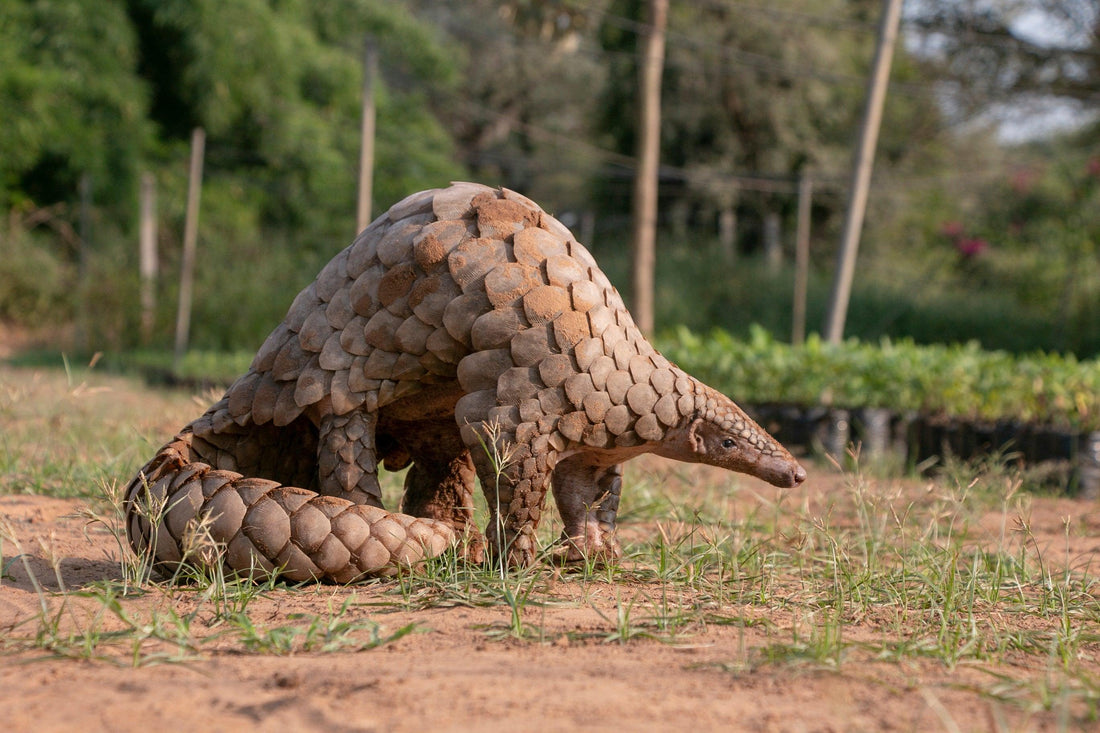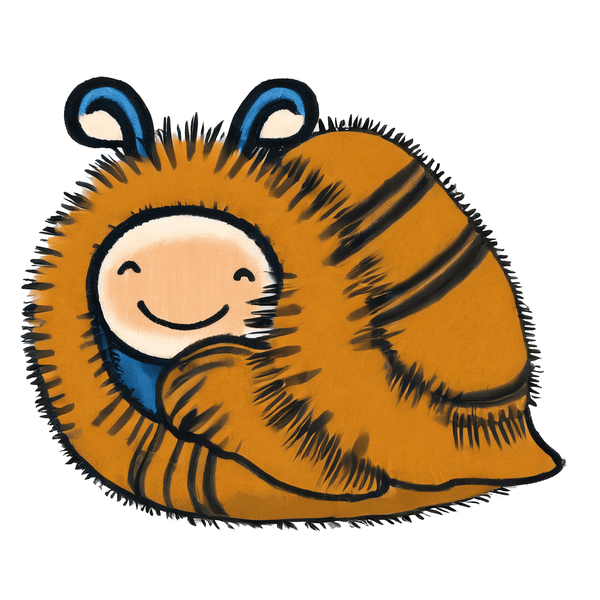
Fun Facts about Pangolins
Share
Pangolins are fascinating creatures that often go unnoticed in the animal kingdom. These unique mammals are known for their distinctive appearance and intriguing behaviors. Learn some fun facts about pangolins!
Pangolin Scales
One of the most remarkable features of pangolins is their protective scales. These scales, which cover their entire body, are made of keratin - the same material that makes up human hair and nails. What's fascinating is that these scales are incredibly tough and act as a natural armor against predators. When threatened, a pangolin will curl up into a tight ball, completely exposing its scales, making it nearly impossible for predators to penetrate their defense. The scales are also unique to each individual, similar to a fingerprint. This helps scientists in identifying different pangolins in the wild. However, this natural defense behavior makes pangolins incredibly easy to traffic, as they can generally just be picked up and carried away.
Pangolin Eating Habit Fun Facts
Pangolins have a unique diet that sets them apart from other mammals. These creatures primarily feed on ants and termites, using their long and sticky tongues to capture their prey. In fact, a pangolin's tongue can be longer than its body! They have an insatiable appetite and can consume thousands of insects in a single day. Despite their voracious eating habits, pangolins do not have teeth. Instead, they rely on grinding the insects against the tough keratinous lining in their stomachs. This process, known as gizzard action, helps them break down the tough exoskeletons of their prey.
Elusive Nocturnal Creatures
Pangolins are primarily nocturnal animals, meaning they are most active during the night. They have excellent hearing and a strong sense of smell, which helps them navigate in the dark and find their prey. Due to their elusive nature, spotting a pangolin in the wild is incredibly rare. They are skilled climbers and spend much of their time in trees, using their powerful claws to grip the branches tightly. Their strong tails also aid in balancing while climbing.
Pangolin Conservation
Pangolins face significant threats, primarily due to illegal wildlife trafficking. They are one of the most trafficked animals in the world, hunted for their scales and meat. This illegal trade has led to a sharp decline in pangolin populations, putting them at risk of extinction. Conservation efforts are crucial to protecting these amazing creatures. Several organizations and initiatives are working tirelessly to raise awareness, combat illegal trade, and conserve pangolin habitats. By supporting these efforts, we can contribute to the survival of pangolins and ensure their existence for generations to come.
It is important to spread awareness about pangolins and educate others about the importance of their conservation. We can also support local communities that live in pangolin habitats, helping them find alternative sources of income that do not rely on the illegal trade of pangolins. By working together, we can make a real difference in the lives of these extraordinary animals.
Snugglebug works directly with the Red Panda Network, and through a recurring monthly donation and symbolic red panda adoption, pangolins and other vulnerable species are being further protected and conservation efforts for both animals and their natural habitats are being furthered. Snugglebug seeks to further their involvement with the Red Panda Network through additional conservation projects, and you can help with your purchase of a pangolin plush!
Pangolins are truly remarkable creatures with a range of captivating characteristics. From their unique protective scales to their specialized diet and elusive behavior, they continue to intrigue scientists and nature enthusiasts alike. However, their survival is under threat, and it is important that we take action to protect them. By spreading awareness, supporting conservation initiatives, and combating illegal trade, we can make a difference in preserving these incredible animals. Let us appreciate and celebrate the wonders of pangolins and work together to secure a future for them on our planet. Together, we can ensure that pangolins thrive and continue to inspire awe and admiration for generations to come.
